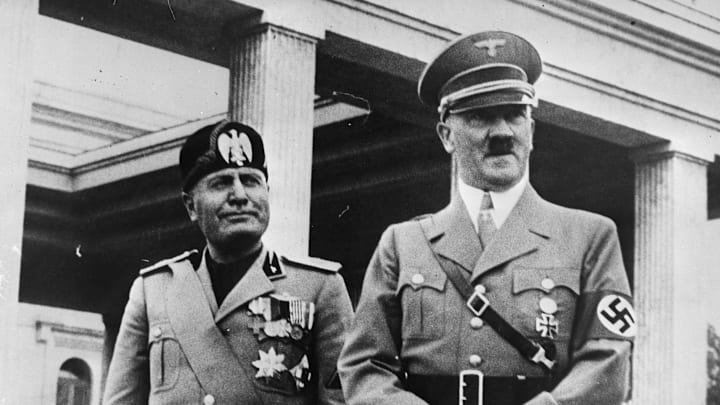Prioritizing corporations over workers
Fascist leaders often bring people together with promises of a stronger economy, but they don't usually mean a strong economy in the same way that ordinary people do. While the individual person might judge the economy by their own salary, ability to pay for basic needs, and the accessibility of luxury items, fascism once again prioritizes large groups' success over the needs of any one person.
In some ways, this happens by talking about nationwide statistics, like the GDP and the unemployment rate. If those statistics are good, no matter how bad life is for the average person, they hold it up as a success. But it also manifests through the suppression of workers for the sake of corporate interests.
Nearly every fascist checklist mentioned above has at least one key point focused on this issue. Production means power, so fascist regimes often give corporations unchecked power over their workers and customers, sacrificing the well-being of the people to achieve the highest level of production. This production is typically directed toward military purposes, allowing more effective control at home and/or easier success abroad.
Authoritarian hierarchy
This is probably the most widely-known component of a fascist government, but it's still worth mentioning. Although it's not uncommon for fascism to rise from a democracy, the fascist leader will quickly begin putting people in place and changing laws so they do not have any competition for supreme control. They must be in charge of everything, with their most loyal supporters gaining power of their own to enact the leader's whims.
In addition to the single, totalitarian ruler, all other forms of government must be controlled by the leader's political party. This makes it so that all sides of government, from directing the military to managing trade to deciding who gets to eat and how much, are following the same orders. In Umberto Eco's words, "Disagreement is treason." Anybody who doesn't obey is removed from office, imprisoned, or killed to keep others in line.
The creation of the single-party state is the primary goal of the fascist regime because it allows all other goals to be accomplished more easily. Anyone from a different party must be removed; any government structures that have similar power to the leader must be dismantled; any dissent from within the party must be destroyed. Then, when the highest members of the hierarchy say to do something, they can be sure it will be done with little to no dissent.
For those not at the top, the common strategy is to perform their loyalty. To gain a higher place in the government, people will agree with anything the dictator says, doing all they can to put it into action. But these people are not generally those who believe in the leader above all else. Instead, they are "convinced that everybody who commands the instruments of violence with the superior methods of totalitarian organization can become infallible." (Arendt) Seeing the writing on the wall, they become supremely loyal to reap the rewards.
